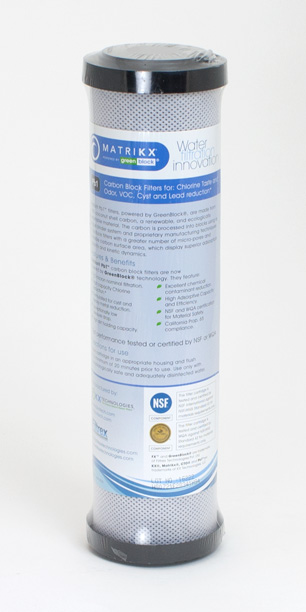Why Don’t Tiny EOT (End of Tap) Filters Work As Well As Standard Filters? Well, Because They Are Tiny
Most of the bad publicity (“filters don’t work”) that resulted from poor performance on tests done on lead filters supplied to homeowners in Flint and Newark ignored the fact that the filters provided were novelty-sized units meant for off-the-shelf purchase. They could not be expected to “work” as well as full-sized filters actually designed for long-term use in homes.
Here is sizing information from the manufacturer of MetSorb®, a heavy metal removal medium that is added to carbon block filters to give them lead-removal capacity.
A nominal 10 – inch carbon block, standard for most countertop and undercounter applications, will provide more overall volume and more functional media than the 2 to 2-1/2 inch blocks typically used in end-of-tap (EOT) applications. For example, a nominal 10 – inch carbon block can easily perform for 1000 gallons or more of contaminant reduction, while the smaller EOT blocks are rated at several hundred gallons.
The larger block design also gives longer contact times (EBCT or Empty Bed Contact Time) for better contaminant reduction. For example, a nominal 10 – inch block will provide an EBCT of 10 -15 seconds, while a typical 21/2 inch EOT block gives only 3 seconds EBCT. Devices designed for slower flow rates, e.g., 0.5 gpm (gallons per minute) versus 1.0 gpm will provide longer contact times and better percentage contaminant reduction.
This 10″ carbon block fits standard sized countertop and undersink filters and provides 2500 gallons of lead-free water at 0.75 gallons per minute.





